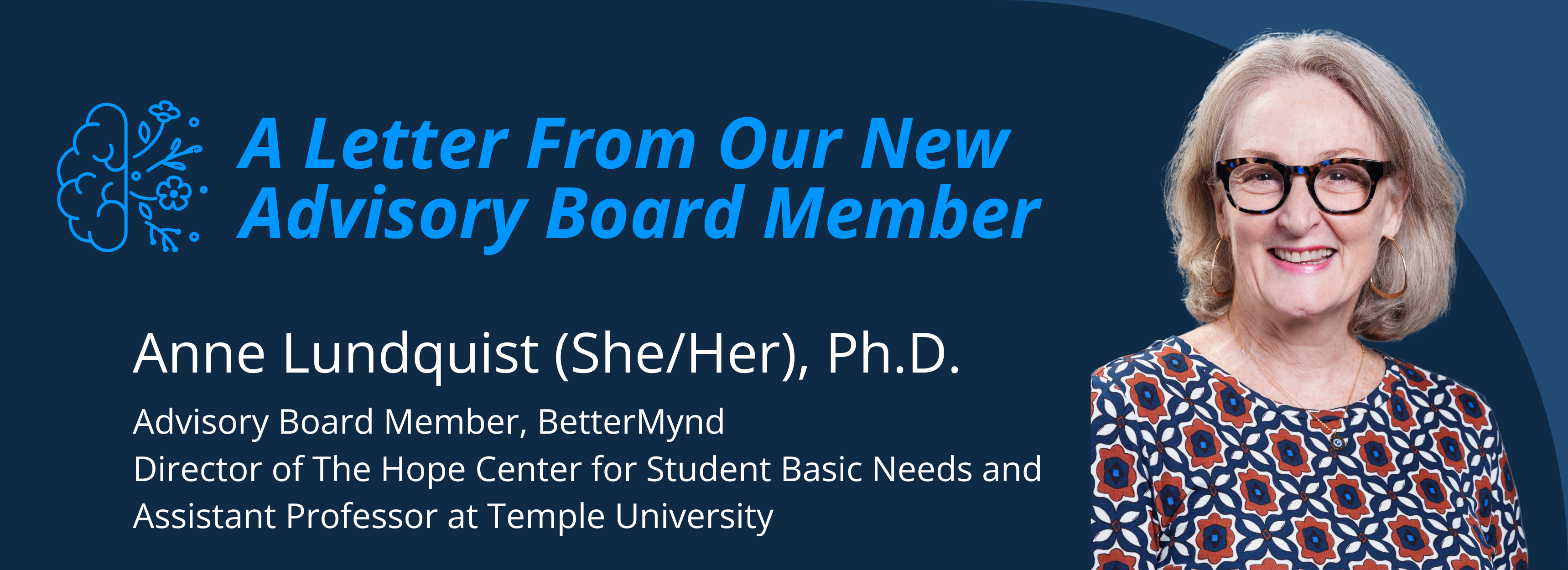The mental health challenges facing today’s students are greater than ever. With tuition costs tripling in recent decades, a 44% increase in students reporting anxiety and depression revealed by The Hope Center’s Basic Needs Survey, and significant increases in the percentage of students with significant symptoms of depression and anxiety (the Healthy Minds Study), it’s clear that mental health isn’t just an individual issue; it’s systemic.
I’ve spent my entire career in higher education and have witnessed this change first-hand; first as a resident advisor, then First Year Program Coordinator, Dean of Students, faculty member, Director of Assessment and now in my role as Director of The Hope Center for Student Basic Needs in the Lewis Katz School of Medicine at Temple University. I have come to passionately believe that students are humans first and that their basic needs—including mental health and well-being—are central conditions for learning.
We often think of basic needs as food, shelter, and safety – and it’s time for mental health to take its rightful place on that list. Here’s why mental health matters as a fundamental need:
- A new “traditional” college student: Today’s students are older, many of them parents, first generation, and/or live below the poverty line. We must discover and evaluate how to support both access and success for today’s students.
- Foundation for learning: Students can’t excel in the classroom if they’re overwhelmed by stress or anxiety.
- Addressing inequities: Lack of mental health support disproportionately affects diverse and low-income students, deepening inequities in education and society.
- Drive academic and wellness outcomes: Meeting mental health needs leads to better retention, graduation rates, and overall student success.
I believe we can do two things at once: support individual students throughout their college journey and advocate for and participate in structural change at all levels that aims to remove the barriers for students and ensure equitable outcomes for all. That brings me to my new advisory role at BetterMynd.
I see BetterMynd as a bridge between students and the mental health care they deserve. While there are a many companies providing mental health services to higher education, I believe BetterMynd is doing things differently and in the market for the right reasons: to provide high-quality, evidence-based counseling support directly to students at a fair cost to colleges and universities.
I have deep trust in their leadership, including Doug Fraser, Senior Vice President of Campus Relations, who I’ve known for nearly 10 years as mission-first leader with great heart and integrity, and Cody Semrau, CEO and Founder, who humbly started, and continues to lead, BetterMynd out of his own personal experience as a college student who faced a mental health crisis.
The BetterMynd team truly values the work already being done on campuses – seeking to complement, never replace, existing counseling services – and equips campuses of all types to provide the critical mental health services that students need to be well, persist, and graduate.
I’m thrilled to step into this role and look forward to continuing to work towards a reality where every student who dreams of a college degree can achieve it—free from the barriers of anxiety, depression, and systemic inequities.
In health,
Anne


